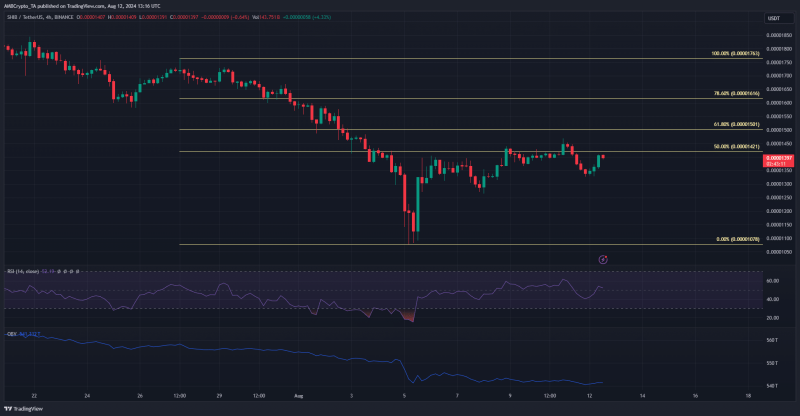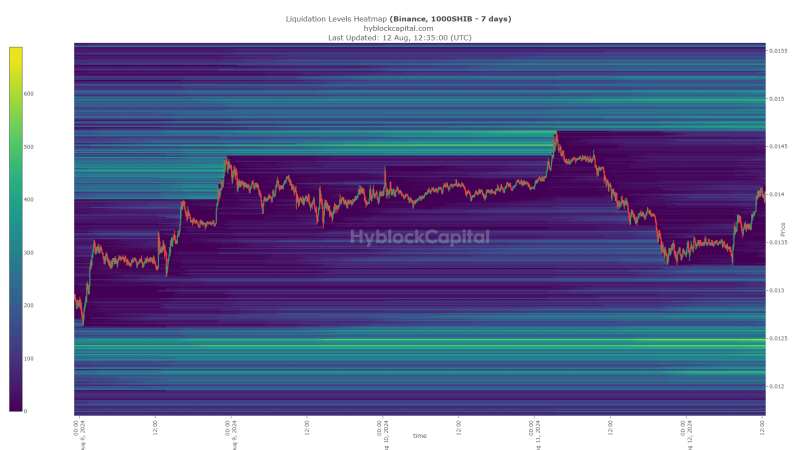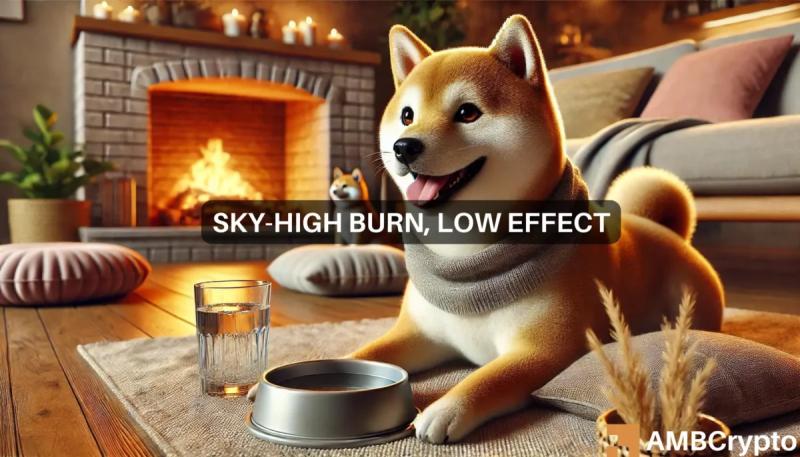On the 11th of August, 38.8 million SHIB were burnt, a 38199412.62% increase compared to the previous day.
Edited By: Saman Waris
- A large percentage increase in the SHIB token burn was seen on the 11th of August
- The price impact was slight, and the meme coin maintained its bearish long-term outlook.
The Shiba Inu [SHIB] burn mechanism saw a noticeable burn transaction on the 11th of August. 38,812,544 or 38.8 million SHIB were burnt, a 38199412.62% increase compared to the burn amount of the previous day.
Since then, the burn rate has mellowed down. Shibburn, which tracks the amount of the meme coin burnt each day, noted a 96% burn rate decrease after yesterday’s spike.
What is the burn mechanism?
The goal of burning any crypto token is to ensure scarcity and fend off inflation. For example, Ethereum [ETH] implements this by burning ETH from transaction fees, which are split into two components, base fee and priority fee.
Similarly, Shiba Inu also has a similar burn mechanism. Each time a transaction occurs on the network, a percentage of the transaction fee is sent to the burn address.
The burn or null addresses can receive tokens but can’t send them. Shiba Inu has three of them. Tokens sent to these addresses are effectively “burnt” and can not re-enter circulation.
Price impact of SHIB’s burn rate hike?

The price impact was minimal. Over the weekend, the entire crypto market saw a ~5% pullback. The market structure on the 4-hour chart was bullish, but on the higher timeframes, it was keenly bearish.
The RSI showed that the momentum was neutral as it twisted about the neutral 50 level. Meanwhile, the OBV was moving southward, although the speed has decreased over the past four days.

The liquidation heatmap of the past week showed that the $0.0000125 and $0.0000145-$0.000015 were the two levels to watch out for.
Realistic or not, here SHIB’s market cap in BTC’s terms
It is unclear which of the short-term liquidity pockets will attract SHIB first, but a reversal could likely commence from there.
Given the lack of demand and being the denser liquidity pocket, the bearish target might be the first to be swept.






